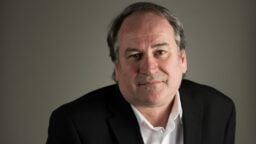MBW broke the news yesterday that the BBC has banned staff from playing tracks by artists such as Neil Young and The Doors.
The Beeb blamed the fact these artists had declined to sign up to UK mechanical rights society MCPS, which operates a blanket license agreement with the broadcaster.
Yet further investigation reveals that the catalogues of The Doors and Young haven’t been part of MCPS for years (and an MCPS license isn’t required for basic radio play anyway) – so why has the Beeb this week strictly outlawed their songs?
Now we know: because the BBC is about to launch a feature allowing users to download radio shows and music TV programmes from its streaming entertainment platform, bringing mechanical rights into play for every broadcast.
The consequences of this offline move will be felt across the entire spectrum of music rights-holders.
A BBC spokesperson told MBW: “The issue has arisen for radio now because we will soon launch a feature which will enable audiences to download radio and music programmes to listen to offline on the BBC iPlayer Radio app.
“This involves the MCPS right which has been withdrawn.”
“The BBC can use neil young any time they negotiate a license with us to do so.”
Naomi Asher, Wixen Music UK
The big question is, is this a one-off exception – or will more acts now effectively refuse to let the Beeb play their music?
That really depends if further artists/writers/publishers follow the example of Wixen Music, which represents the mechanical rights of both Young and The Doors, as well as Journey – who have also been blacklisted at the BBC.
After following the instructions of its clients by removing their rights from MCPS, Wixen is now calling for a US-style case-by-case licensing setup at the BBC.
Naomi Asher, Director of Wixen Music UK, explains: “The BBC can use Neil Young and the Doors any time they negotiate a license with us to do so in a given programme.
“All we are saying is that we won’t pre-approve uses or fees if the clients have not had an opportunity to review and approve the uses and fees.
“In the USA, where these artists are based, TV uses are approved and fees negotiated by the artists and songwriters, or their representatives, and our clients are not used to blanket pre-agreed uses and fees.
“This is just basic respect for artists and songwriters wishing to determine how their work is used and at what fees.”
Therefore, Wixen is clearly calling for the ability to strike direct licensing deals with the BBC, much in the same way Apple operates.
(Despite the recent hoo-ha over independent publishing royalties on Apple Music, it’s noteworthy that both Neil Young and The Doors’ back catalogues are on there in full.)
As for the BBC, it seems wedded to the blanket licence agreement with MCPS for mechanical rights – and with PRS for performance rights, plus PPL for recorded rights.
“The bbc believes that single blanket collective licensing remains the most efficient and highly cost-effective way to license music.”
BBC internal memo
In a memo to staff, it said: “We licence and pay for music via the music collection societies as it’s the most efficient and effective way to licence the vast quantity of music rights required by the BBC…
“The BBC believes that single blanket collective licensing remains the most efficient and highly cost-effective way to licence its music.”
With wide-ranging job cuts being implemented at the Beeb as you read this, the operative phrase there is clearly “cost-effective”.
For PRS and MCPS’s part, they are very keen to make it clear they they have not stood in the way of the BBC playing any of their catalogue.
A spokesperson told MBW: “MCPS endeavours to offer blanket licences to broadcasters to enable them to enjoy ‘all you can eat’ access to record all repertoire into programmes.
“However membership of MCPS is optional and these repertoires haven’t been members for several years.
“MCPS therefore has to ensure that any blanket licences transfer appropriate value back to the rights holders in order to be able to continue to offer as much repertoire as possible to broadcasters.
“PRS, which administers performing rights, however, confirms the works remain available for simple radio broadcast.”
One to keep an eye on.Music Business Worldwide




